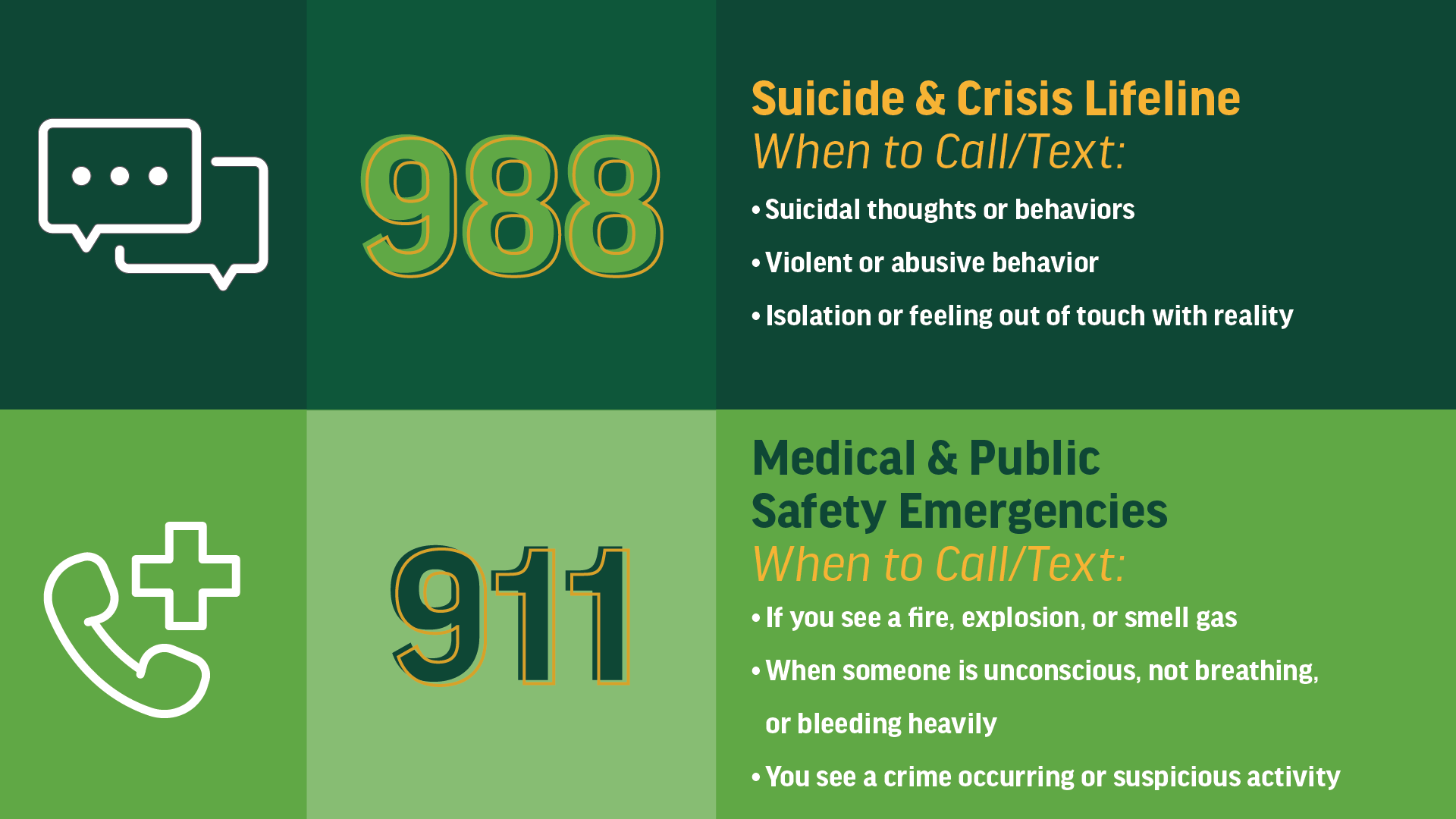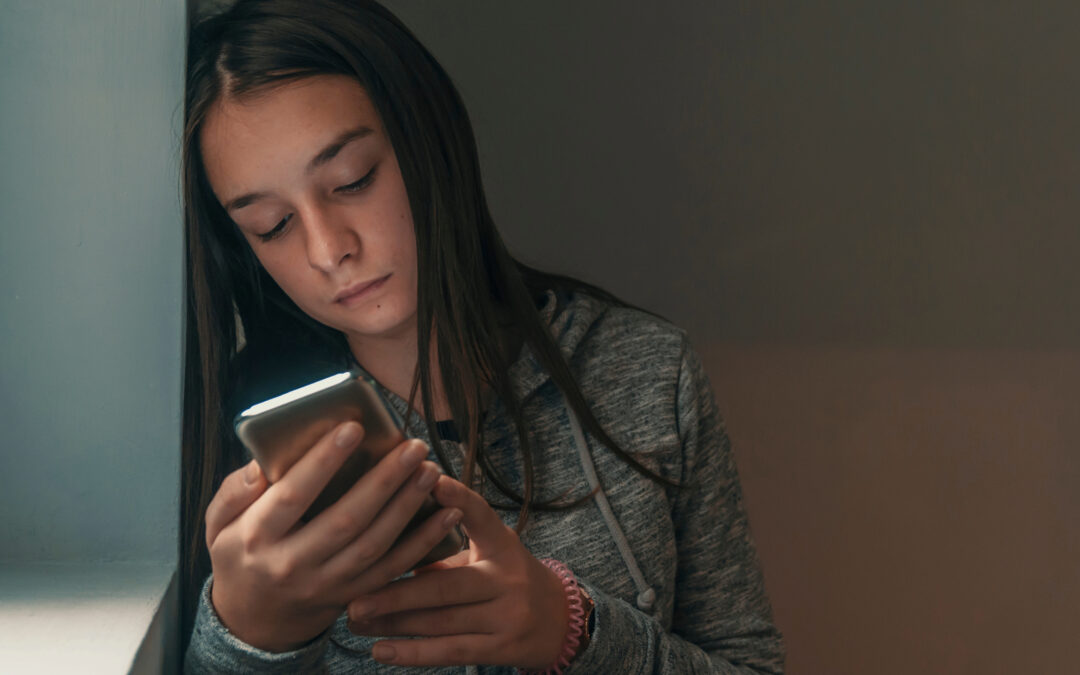If you or a loved one is thinking about suicide or experiencing a mental health crisis, call 988 Suicide & Crisis Lifeline immediately. If you or a loved one are in danger from a medical emergency, a fire, or dangerous criminal activity, call 911 immediately.
Two very important numbers to remember and teach your children are 911, emergency services, and 988, the national Suicide & Crisis Lifeline. These free helpful services are available 24 hours, 7 days a week across the country, accessible via call or text from any working phone line. Callers remain anonymous unless you choose to provide personal information. This article discusses when and why to call each one and provides more helpful resources and toll-free numbers.
988 for Suicide and Mental Health Crisis Help
What is 988?
The Suicide & Crisis Lifeline, 988, is a national, anonymous, toll-free phone number that anyone can call or text to speak with a live person for immediate help when they are experiencing suicidal thoughts or a mental health crisis. Calling or texting this number will connect anyone to a trained professional who is ready to help callers deal with their suicidal ideations (picturing their own suicide), mental health crisis, substance use issues, or other emotional distress. People should also contact 988 if they are worried about a loved one’s mental health crisis and want to provide support.
When is it appropriate to call 988?
Here are some signs of a mental health crisis and when to call 988:
-
Feeling unable to go about daily tasks such as caring for your personal hygiene or changing your clothes
-
Isolating yourself from loved ones, coworkers, classmates, and others
-
Sudden mood swings, such as suddenly happy or calm after bouts of depression
-
Restlessness or pacing
-
Paranoia or feeling out of touch with reality
-
Violent or abusive behavior toward oneself or others
-
Suicidal thoughts or behaviors
It’s okay not to be okay. One in 5 adults experiences some form of mental health illness at some point within a year’s time; that statistic is similar for children 13 and up, according to the National Institute of Mental Health (NIMH). Help is available.
More information on 988
-
When someone contacts 988, a trained crisis counselor will answer, listen to the person, provide support, and share resources as needed. Crisis counselors are trained to help in a variety of crisis situations, and no one is required to disclose any personal information.
-
You can also text 988. Send any message to 988 to start a text conversation. You can also reach a crisis counselor via web chat at 988lifeline.org/chat.
988 Support for Veterans
If you are a Veteran and require crisis support, call 988, then push 1. This takes you directly to the Veteran’s Crisis Line. Call if you or a Veteran or service member in your life is showing signs of crisis, such as:
-
Talking about feeling hopeless
-
Experiencing anxiety or agitation
-
Increasing risky behaviors or substance use
911 for Police, Medical, or Fire Emergencies
The 911 emergency services number is for when you need immediate assistance from police, the fire department, or an ambulance. For now, the best way to reach 911 is with a voice call. However, if you are unable to call or if it is unsafe for you to call, you can text instead.
Examples of when to call 911:
-
-
If you see a fire or an explosion.
-
If you smell gas.
-
When someone has severe chest pain, is unconscious, or is not breathing.
-
If someone is bleeding heavily or has a serious injury.
-
When someone is having a severe allergic reaction.
-
If someone is showing signs of a stroke: F.A.S.T. – Face drooping, Arm weakness or tingling, Speech difficulty, Time to call 911 if someone is having a stroke.
-
You see a crime occurring.
-
You witness suspicious activity, such as someone looking into the windows of parked cars or homes or threatening to harm someone.
-
If you see someone driving recklessly or erratically.
-
If you aren’t sure if your situation is an emergency, call 911 and answer their questions so that the call-taker can make that decision.
-
What to expect when you call 911
When you call 911, be prepared to answer the call-taker’s questions, which may include:
-
The location of the emergency, including the street address
-
The phone number you are calling from
-
The nature of the emergency
-
Details about the emergency, such as a physical description of a person who may have committed a crime, a description of any fire that may be burning, or a description of injuries or symptoms being experienced by a person having a medical emergency.

Additional Helpful Resources
CommunityFirstResources.com: Help finding low-cost or no-cost food, housing, job training, mental health resources, by zip code.
Center for Healthcare Services: Local organization that works with children and adults across Bexar County to provide counseling, resources, and the support they need to make life better.
Healthy Mind Behavioral Health Program: A free Health and Wellness Program for Community First Members offering resources and tools for Social Balance & Wellness support and help finding the right doctor or counselor for a mental health condition.
Community First Behavioral Health & Substance Use Hotline: 1-877-221-2226 (STAR Kids: 1-844-541-2347)
Remember: Help is always just a phone call away!
You are not alone. This is not your fault. You deserve help and support. There is support available for you.
Visit our blog to read more about free community events, local resources, and health and wellness tips. Have a question or a topic suggestion? We want to hear from you!


